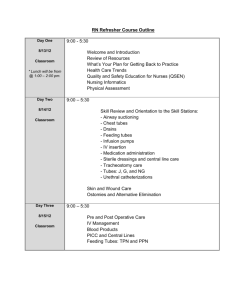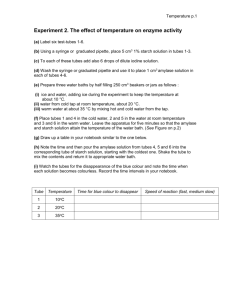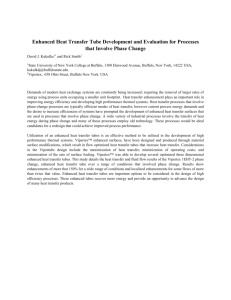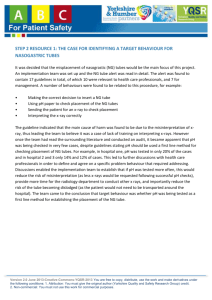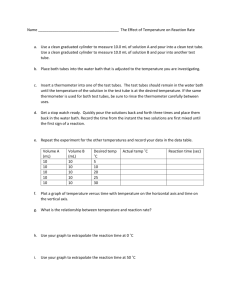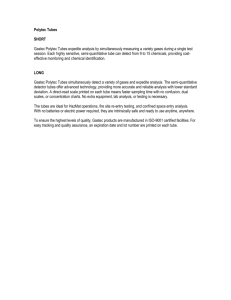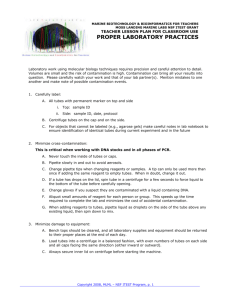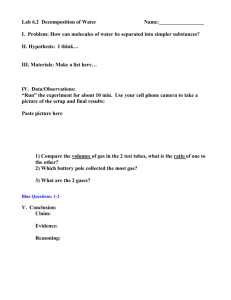Clinical Applications: Tubes, Tubes, Tubes
advertisement
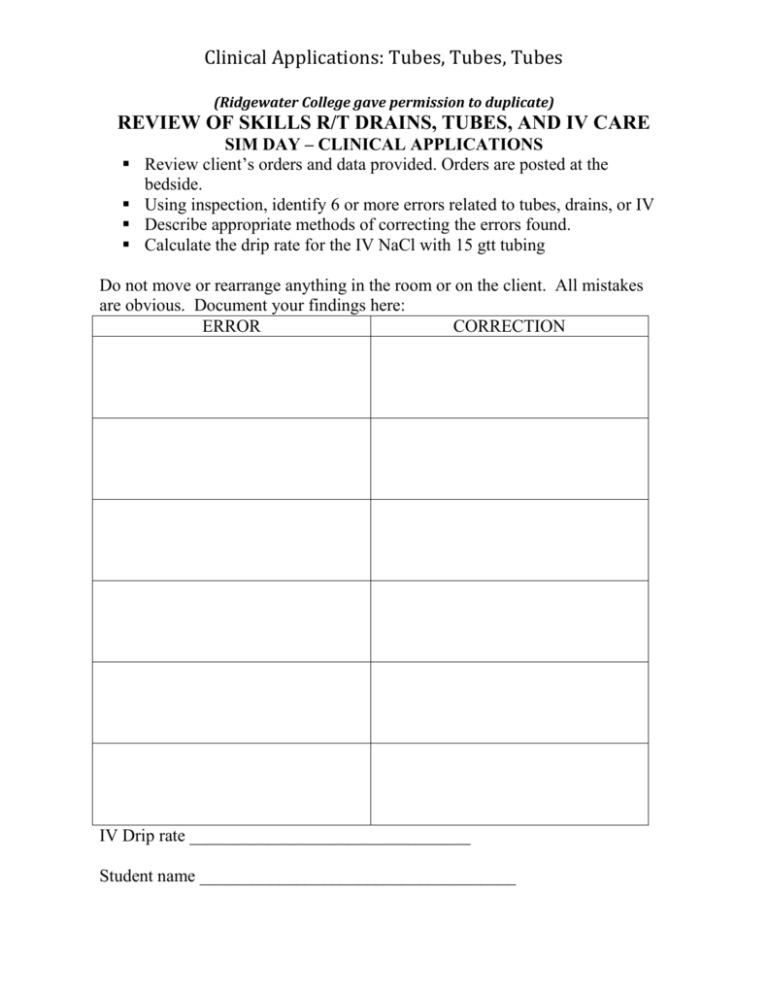
Clinical Applications: Tubes, Tubes, Tubes (Ridgewater College gave permission to duplicate) REVIEW OF SKILLS R/T DRAINS, TUBES, AND IV CARE SIM DAY – CLINICAL APPLICATIONS Review client’s orders and data provided. Orders are posted at the bedside. Using inspection, identify 6 or more errors related to tubes, drains, or IV Describe appropriate methods of correcting the errors found. Calculate the drip rate for the IV NaCl with 15 gtt tubing Do not move or rearrange anything in the room or on the client. All mistakes are obvious. Document your findings here: ERROR CORRECTION IV Drip rate ________________________________ Student name ____________________________________ Clinical Applications: Tubes, Tubes, Tubes (*Contact Ridgewater College for permission to duplicate) Patient Information Room # ____________ Current Time ______________ Name: Marvin Johnson Physician: Dr. Andrew Nelson Diagnosis: Blunt Abdominal Trauma Diet: NPO IV Orders: 0.9% NaCl at 75 mL/hr ceftriaxone sodium 1 gram IVPB every 12 hours (infusing now) Other: Foley catheter to straight drainage NG to intermittent low suction JP abdominal drain O2 per mask to maintain SpO2 at 90% or greater Chest tube to gravity drainage Clinical Applications: Tubes, Tubes, Tubes (*Contact Ridgewater College for permission to duplicate) Instructor’s Guide Outcomes Students will monitor the patient situation using knowledge of IV, tubes and drains. Students will identify six or more errors in the situation Students will describe appropriate methods of correcting the errors found. Students will calculate an IV drip rate Students will review IV pumps, IV charting, and care. Environment ½ of the group of 8 works with manikin, ½ with instructor to review IV, etc. Students should work independently to fill out the errors & corrections worksheet. They should hand in the worksheet before leaving the room for the next rotation. Potential errors that may be placed on manikin: NG is a feeding tube, not NG NG is pinned to the pillow/sheet/nothing NG is not secured to nose properly Tubings are kinked or knotted. Ancef dose is incorrect at 500 mg (I made a label to put on an IVPB bag) Incorrect IV medication is hanging Primary and secondary lines are reversed, or IV’s wrong in other ways IV tubing is outdated Cath bag is on floor/bed/ No cath secure on patient Water glass or filled water pitcher on overbed table (pt is NPO) O2 cannula (rather than a mask) is set at 2 L. JP drain is full of red fluid or JP drain is closed but not squeezed tight JP drain is kinked or knotted JP drain not secured correctly No drain sponge dressing around JP May use MAR and Kardex if desired, but otherwise just post the patient information sheet near the bed. Sim Day: We had three stations (MCN, Psych, and Acute) with 1 hour 15 minutes per rotation. In this acute care rotation, student groups of eight were divided in half. ½ went to an area with instructor, explaining IV pumps, how to program the pump, obtaining totals, and other IV review for 25 minutes ½ were at the manikin finding errors; then groups rotate (taking 50 minutes total) Instructor also has a couple of students D/C the JP tube so students are aware how long a JP drain is so they are not surprised if they remove one during a clinical rotation. Remainder of time in this rotation was spent in debriefing; reviewing errors and corrections Clinical Applications: Tubes, Tubes, Tubes *This was a great review to do for an early Sim day prior to beginning Clin Apps. Students evaluated it very positively. List of equipment needed: Vital sim or plain mannequin Foley catheter inserted – do not attach a cath secure Oral feeding tube (rather then an NG tube) not secured JP drain Oxygen cannula set at 2 L Chest tube in place and to gravity drainage Two IV pumps – one with an IV running of Lactated Ringers rather than the prescribed NaCL or else have the correct solution at the wrong rate or both. IVPB running 500mg rather then 1Gm of Ancef at the wrong rate as well.
